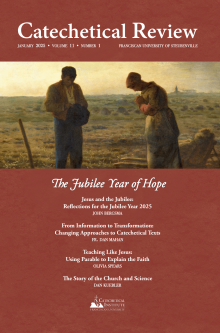 As tears filled his eyes and his voice broke, the 16-year-old sophomore told me, “I just can’t see her the way she deserves to be seen.” He meant his girlfriend, about whom he cared deeply. His compulsion to consume pornography was sabotaging his ability to love her.
As tears filled his eyes and his voice broke, the 16-year-old sophomore told me, “I just can’t see her the way she deserves to be seen.” He meant his girlfriend, about whom he cared deeply. His compulsion to consume pornography was sabotaging his ability to love her.
Once hidden and socially condemned, porn is now ubiquitous and normalized. The mainstream tolerance of porn began gradually increasing in the 1960s, though you usually had to go looking for it. With the explosion of smart devices and artificial intelligence, porn now comes looking for you.
But rather than ushering in liberation, normalized porn has wrought enslaving devastation across our humanity. Porn dehumanizes those who produce it, those who consume it, those who are victimized and trafficked into it, and those whose relationships are fractured in the collateral damage. Porn inverts the meaning of human sexuality—designed to be a joyous, life-giving gift of self—into a reductive experience of pleasure and dominance. In all its terrible forms, porn reduces relationships to transactions. For so many like the young sophomore who recognized his own distorted vision, porn is a ruthless enemy of the love we yearn to give and receive.
Young people are experiencing porn’s harm in their lives regularly and distinctly. The average age of first exposure to porn fluctuates between 11 and 12. By age 13, more than half of teens have seen porn. They often report they feel ashamed and guilty after consuming porn. They often acknowledge its compulsive dynamic and destructiveness in their relationships. They wrestle to escape it.[1]
When I asked a group of about 150 teenage girls what normalized distortions they thought were causing harm to their own lives, almost all of them named pornography. They wrote: “You can’t get away from porn.” “Everyone cheats because people have extremely high and unrealistic expectations caused by porn.” “People lose interest so easily in you because they’re used to porn, which shows girls in a fictional way.” “Porn creates selfish fantasies for people, causing them to forget the meaning of love.”
Shame and secrecy only magnify and compound the problem. How can we help, and why does it matter so much that we do? With ideas about sexuality so commonly distorted, young people need clear vision.
The rest of this online article is available for current Guild members.
[1] Michael Robb and Supreet Mann, Teens and pornography: Key findings from research with U.S. teens, young adults, and parents (2022), https://www.commonsensemedia.org/sites/default/files/research/report/2022-teens-and-pornography-final-web.pdf
[2] Quoted in Bishop Jean-Pierre Camus, The Spirit of Saint Francis de Sales (1639), trans. N.M Thompson (Burns and Oates, 1880), 3.
[3] Karol Wojtyła, Love and Responsibility, trans. H. T. Willetts (San Francisco: Ignatius Press, 1993), 192.
[4] Pope St. John Paul II, General Audience of May 6, 1981, https://www.vatican.va/content/john-paul-ii/it/audiences/1981/documents/hf_jp-ii_aud_19810506.html
[5] Pope St. John Paul II, General Audience of January 16, 1980, https://www.vatican.va/content/john-paul-ii/en/audiences/1980/documents/hf_jp-ii_aud_19800116.html.
Art Credit: Michael Henry, Unsplash.com.
This article is from The Catechetical Review (Online Edition ISSN 2379-6324) and may be copied for catechetical purposes only. It may not be reprinted in another published work without the permission of The Catechetical Review by contacting [email protected]
















